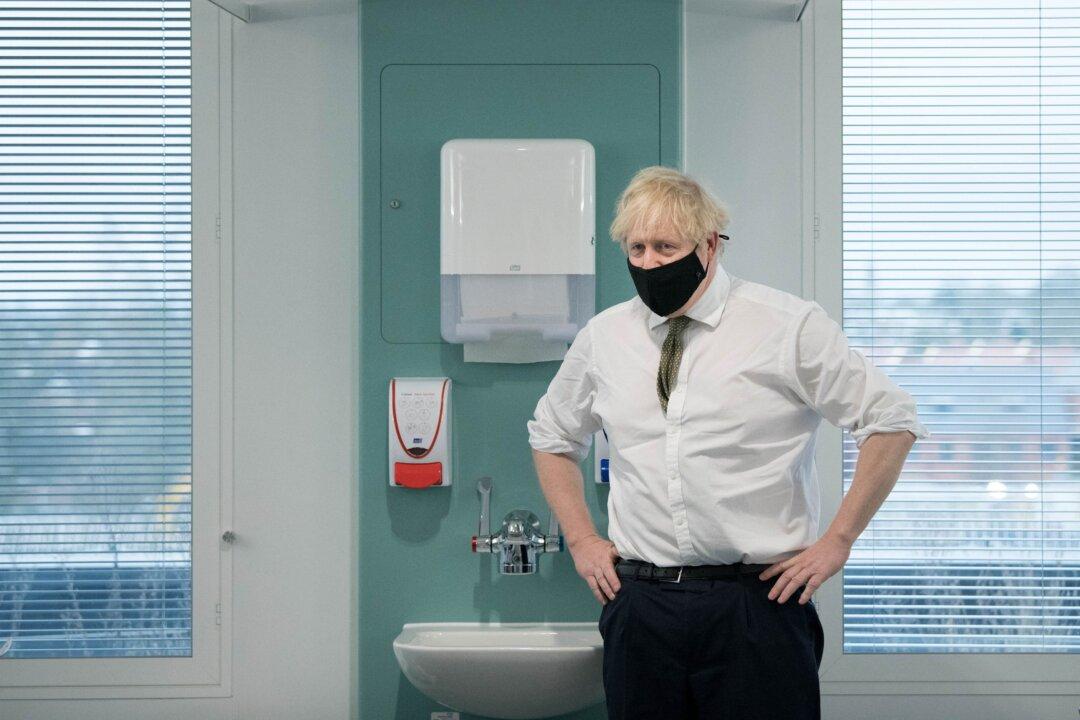UK Prime Minister Boris Johnson has announced England will be put into a new national lockdown from the early hours of Wednesday, ditching the local tiered system, which he says has failed to hold back a surge of the new CCP virus variant.
Johnson’s announcement came on the day that the rollout of the Oxford/AstraZeneca vaccine started in the UK. The government has ordered 100 million doses of the vaccine—enough to potentially inoculate the whole country.





